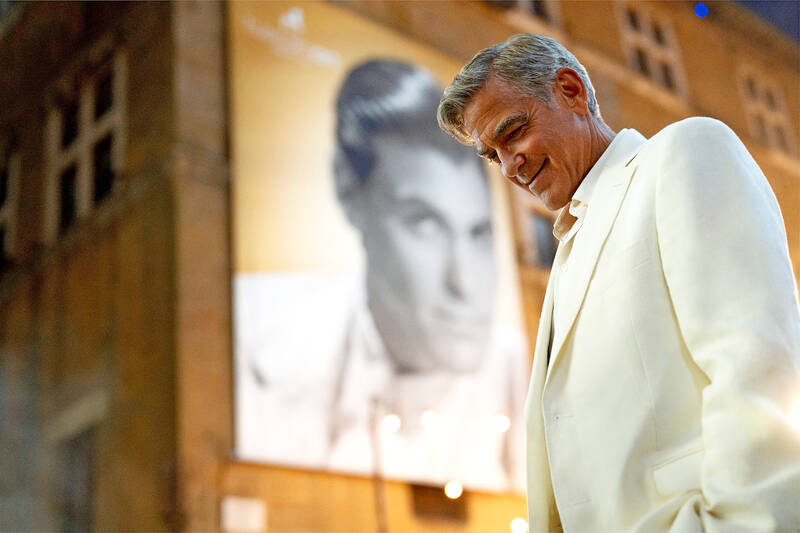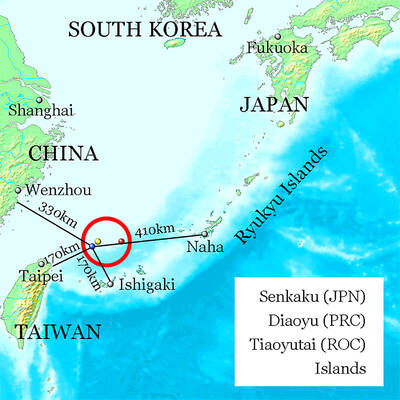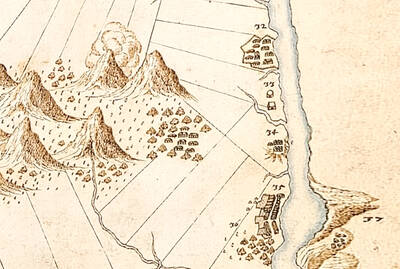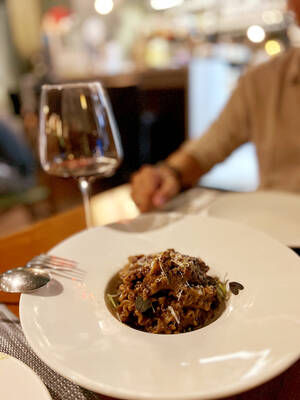During his glittering career, George Clooney has played a casino thief, a Batman, a chain-gang convict, an assassin and a high-flying layoff artist. This fall, he’s stretching even more, playing an utterly charming and gorgeous movie star. Kidding!
Reality and fiction beautifully weave in and out in Jay Kelly, director Noah Baumbach’s love letter to Hollywood that, in other hands, could so easily have become just a love letter to Clooney.
The script by Baumbach and Emily Mortimer finds Clooney — sorry, Jay Kelly — in a sort of midlife funk. He’s 60, a universally beloved, deeply earnest movie hunk who has worked his way to the top and found, well, artifice.

Photo: AP
“My life doesn’t really feel real,” he says at one point, an actor trained in pretending going meta playing an actor trained in pretending. In another scene he muses: “All my memories are movies.”
A chance meeting with an old acting partner — a brilliant Billy Crudup, whose character was betrayed by Kelly years ago — reveals some unpleasant truths. “Is there a person in there? Maybe you don’t actually exist,” he asks the star, sending Kelly on a journey of self-discovery that just so happens to lead to one of Clooney’s favorite places, Italy.
Kelly’s careful facade — the stories he tells about himself — soon gets chipped away. On his way the Hollywood hills, he apparently left some personal carnage behind. Jay Kelly is about those who sacrificed to get him there.

Photo: AP
Adam Sandler and Laura Dern play Kelly’s long-suffering manager and publicist, respectively, while his resentful adult daughters are portrayed by Grace Edwards and Riley Keough. Kelly, we learn, put career first and that meant walking away from things like his daughters’ school recitals and making his staff miss things like their daughters’ school recitals. “He’s not our family or our friend,” Dern’s character screams in despair. “We’re not to him what he is to us.”
You’d expect Clooney to not have to shift out of second gear for this, but he gives a soulful performance, charming enough that his Kelly seduces a trainful of strangers in Italy with his aw-shucks charisma and yet also bristles when his oldest daughter makes him confront her abandonment issues.
“Do you know how I knew you didn’t want to spend time with me?” his daughter asks him, before answering in a line that will land like a gut punch with any parent: “Because you didn’t spend time with me.” Another killer: “I wish you were the man I thought you were.”

Photo: AP
This being a movie about a movie star, Baumbach and Mortimer naturally surround their hero in classic film nods, from Alfred Hitchcock to Federico Fellini, whose visuals become a touchstone, like the sight of a priest licking two ice cream cones. There are jokes made about the Method school of acting and being a Dior ambassador, but this is ultimately about mortality and life choices, with one scene actually ending in a cemetery, a little too on the nose.
Kelly melts into past vignettes like watching his own long-ago breakout drama audition and his kids’ joyous household revelry. It reaches for the surreal in a mist-filled forest and finds redemption in, of course, a movie theater. A retrospective montage uses such real Clooney roles like Combat Academy and Up in the Air, further blurring the line between fact and fiction.
Clooney puts his ego on the line here, even mocking his heroic vibe when he chases a purse snatcher through a field, echoing his action roles. Even that turns out to be less than heroic. There emerges an off-putting, in-his-own-world Jay Gatsby vibe to him, alluded to by his first name and the name of one of his daughters, Daisy.

Photo: AP
We see his cluelessness up close when he won’t actually listen to his assistants or thoughtlessly tosses away a gift of a neckerchief from a dead colleague’s son. He reveals his vanity when he tries to hide his age with a black Sharpie on his eyebrows.
Could the movie have hit harder at the self-involved stars we often worship? Of course. But what makes it powerful is not the Hollywood drama. This is a movie for any of us who have missed a child’s school recital, asked an assistant to work late or skipped a family dinner because a client was running behind. It’s about time. It’s about where we choose to spend our time. First stop: Jay Kelly.

Last week gave us the droll little comedy of People’s Republic of China’s (PRC) consul general in Osaka posting a threat on X in response to Japanese Prime Minister Sanae Takaichi saying to the Diet that a Chinese attack on Taiwan may be an “existential threat” to Japan. That would allow Japanese Self Defence Forces to respond militarily. The PRC representative then said that if a “filthy neck sticks itself in uninvited, we will cut it off without a moment’s hesitation. Are you prepared for that?” This was widely, and probably deliberately, construed as a threat to behead Takaichi, though it

Nov. 17 to Nov. 23 When Kanori Ino surveyed Taipei’s Indigenous settlements in 1896, he found a culture that was fading. Although there was still a “clear line of distinction” between the Ketagalan people and the neighboring Han settlers that had been arriving over the previous 200 years, the former had largely adopted the customs and language of the latter. “Fortunately, some elders still remember their past customs and language. But if we do not hurry and record them now, future researchers will have nothing left but to weep amid the ruins of Indigenous settlements,” he wrote in the Journal of

Even after years in business, weekend tables here can be booked out a month in advance. The price point far exceeds its competitors. Granted, expectations are soaringly high, but something here failed to hit the high notes. There are a few telltale signs that a restaurant relies solely on outstanding food to create the experience, no gimmicks or distractions needed. La Mole is such a restaurant. The atmosphere is food-forward, with an open kitchen center stage. Our tables are simple; no candles, no dim lighting, no ambient music. The menu is brief, and our waiter directs most

If China attacks, will Taiwanese be willing to fight? Analysts of certain types obsess over questions like this, especially military analysts and those with an ax to grind as to whether Taiwan is worth defending, or should be cut loose to appease Beijing. Fellow columnist Michael Turton in “Notes from Central Taiwan: Willing to fight for the homeland” (Nov. 6, page 12) provides a superb analysis of this topic, how it is used and manipulated to political ends and what the underlying data shows. The problem is that most analysis is centered around polling data, which as Turton observes, “many of these